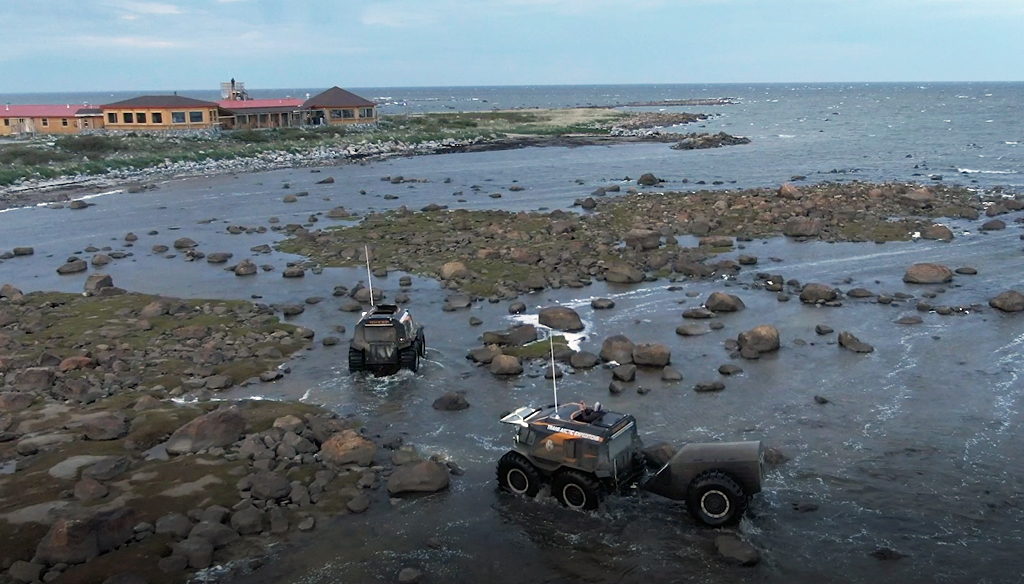by Doug Webber with video by Build Films
Travel anywhere in the Arctic can be challenging, even for me as a pilot, but our new SHERP ATVs have so far proven to be up to the task, with very little impact on the environment.
A few weeks ago, Mike Reimer, Vern Bell and Kelly Turcotte drove two SHERPS from Churchill to Seal River Heritage Lodge and on to Hubbard Point, which is about 60 air miles northwest of Churchill. They probably travelled about 150 km in the SHERPS, through rivers and lakes and over the rugged boulder-strewn Hudson Bay coast.
The amazing machines traversed the rugged terrain effortlessly in an amazingly short time of 19 hours, crossing first the Churchill River, which was a mile wide and 40 feet deep at the point of crossing, and continuing up the coast, crossing three more rivers before reaching Hubbard Point.
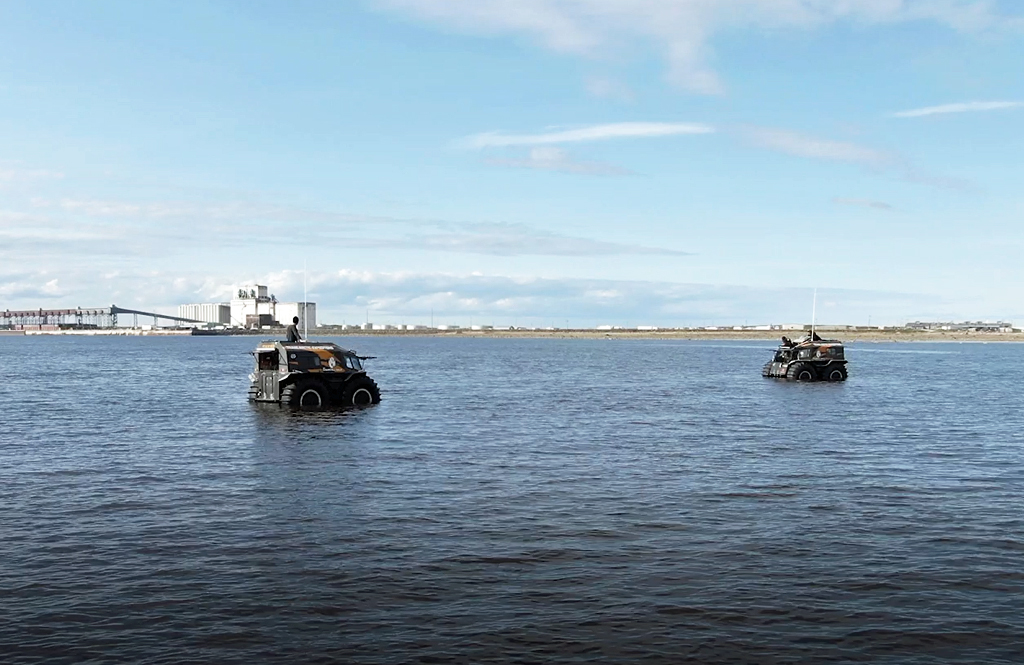
SHERPS floating in Churchill River.
They were basically travelling in the barrens, where willow bushes grow only a few a few inches high unless they are located in the shelter of an old beach ridge, where they can attain the lofty height of up to six feet. And they stuck to the coastline with the SHERPS for most of the journey.
“We won’t drive them in areas where they could damage the environment,” said Churchill Wild Director of Operations Nolan Booth. “They’re only usable on the mudflats that get washed by every tide, or on self-repairing sandbars and beach ridges. We saw polar bears and tons of beluga whales on the trip. When we flew over the next day you couldn’t even see our tracks.”
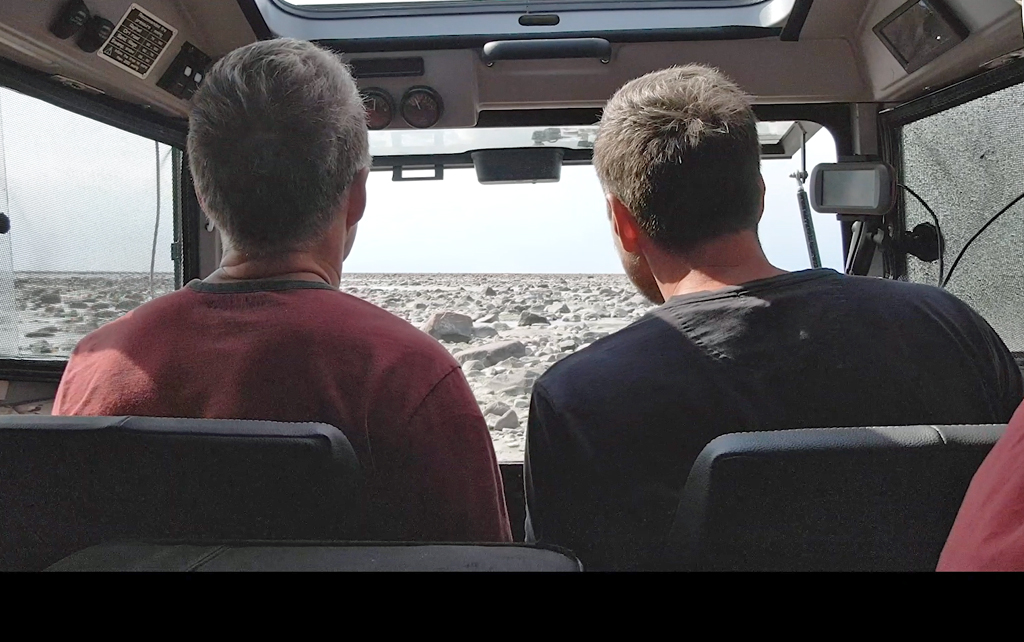
This is rock country!
The SHERPS are being used for film crews and special projects away from the Churchill Wild lodges and they will always remain under the strict guidelines we’ve established at the lodges, to lessen our impact on the environment.
“They can go anywhere and do anything,” said Booth. “And they burn very little fuel.”
The SHERPS floated effortlessly over the terrain, the lakes and rivers, and through the mudflats, driven only by tire tread, and they can inflate and deflate the tires on the go over boulders two feet high. The tracks they leave on the mudflats wash away at high tide, so careful driving leaves NO imprint on the fragile Arctic terrain.
The shallow tundra pond I land on at Hubbard Point has a landing area only three feet deep and sometimes only 50 feet wide. It’s a bit like threading a needle in a windstorm sometimes. I still remember the first time I landed here 40 years ago. I had to circle several times to memorize the landing area.
The weather and wind had to be just perfect the first few times I landed here, until it became as familiar as my own backyard. Now of course, it pretty much is, and I’m so thankful I can still fly my airplane into this wonderful wilderness paradise.
On the edge of the Canadian Arctic.
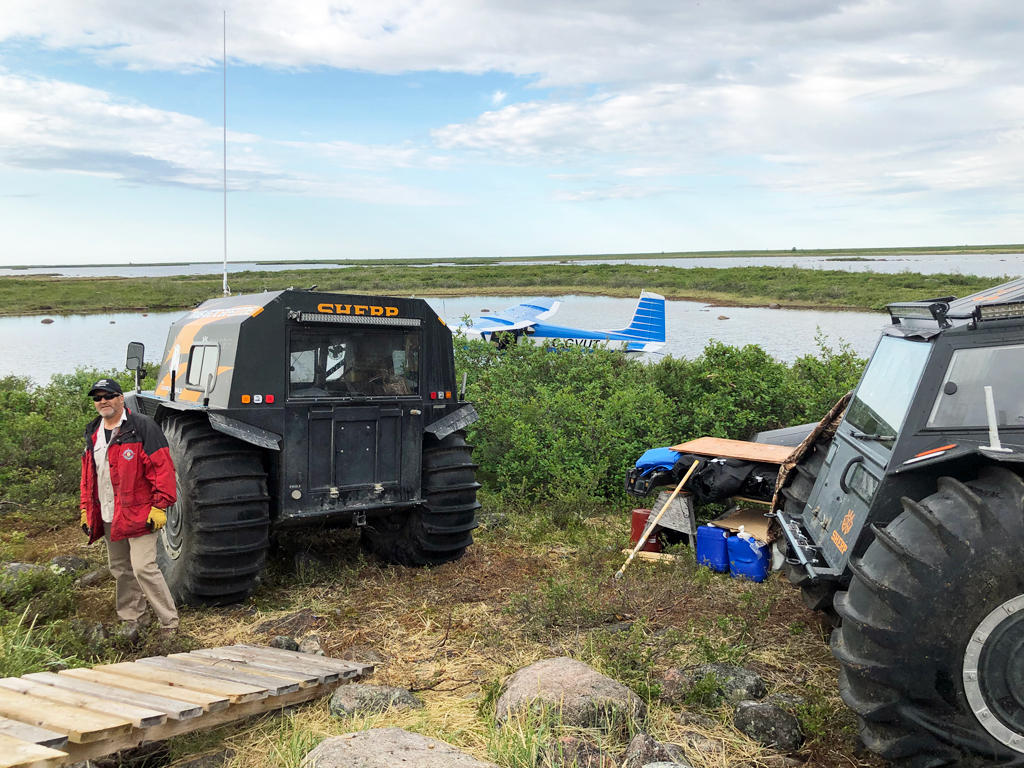
Vern Bell with SHERPS at Hubbard Point. Doug’s plane in the background.
About Doug Webber
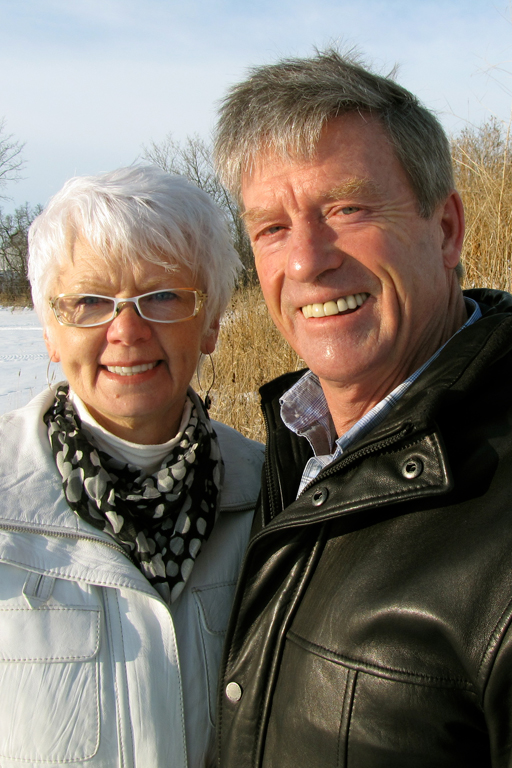
Doug and Helen Webber.
Doug Webber is the father of Churchill Wild co-owner and founder Jeanne Reimer. Doug built the original Dymond Lake Ecolodge, home of the Great Ice Bear Adventure and the lodge
where the Webber and Reimer families first learned to walk with polar bears.
Doug also built Manitoba’s first 5-Star fishing lodge, North Knife Lake Lodge, one of the first solar powered lodges in Canada, and he is the major reason why solar power is now installed at all the Churchill Wild lodges.
Doug was honoured by Travel Manitoba at the Manitoba Tourism Awards in 2012, as the recipient of the Winnipeg Airport Authority Award of Distinction, which recognizes an individual, business or
organization reflecting exceptional leadership in Manitoba’s tourism industry.
Doug’s influence on the Manitoba tourism industry over the past five decades can be found in almost every wilderness lodge in Manitoba, and many other lodges throughout Canada and the world. Doug and his wife Helen, the co-author of the bestselling Blueberries and Polar Bears cookbook series along with Marie Woolsey, helped Mike and Jeanne get started when they first began their Churchill Wild adventure at Seal River Heritage Lodge.
Doug now maintains a supporting role with Churchill Wild as an advisor and consultant. He offers ongoing marketing and operational support and brings a wealth of knowledge and insight to the development of new tourism products.
And you can still find Helen and Marie cooking at North Knife Lake Lodge every summer, which is something you never want to miss!

